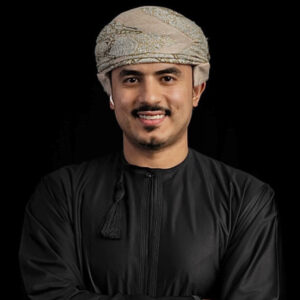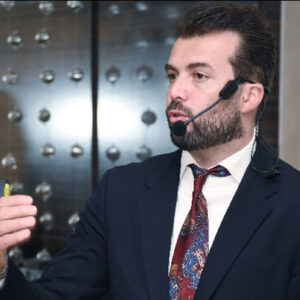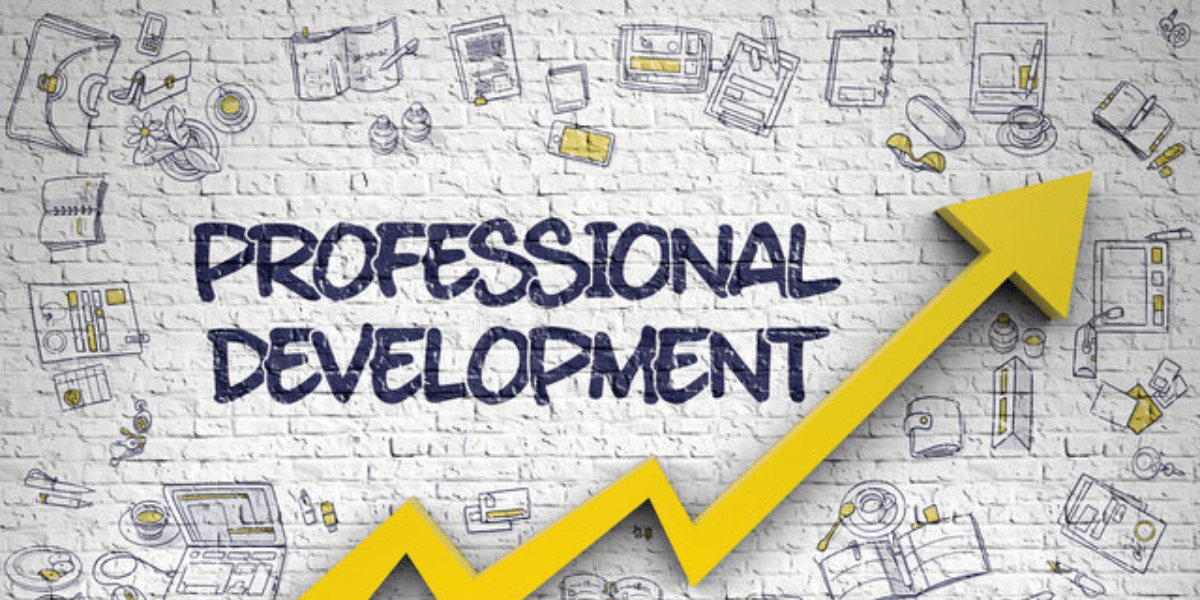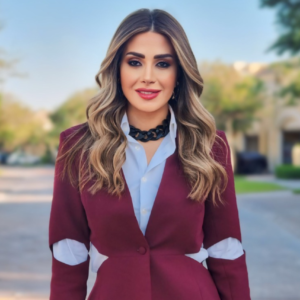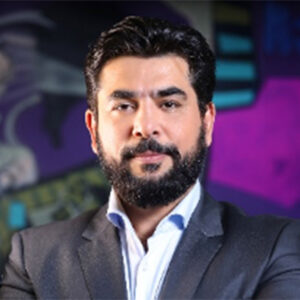Description
“Welcome parents and caregivers! Are you concerned about your child’s speech and language development? Do you find yourself constantly wondering if they’re on track or if there might be a delay? Well, worry no more because we have planned the perfect workshop to answer all your questions.”
In our workshop, we will dive deep into the world of childhood speech and language delays, equipping you with valuable knowledge and practical strategies to support your little one’s development. Whether you’re a first-time parent or an experienced caregiver, this workshop is designed to empower you with the tools necessary to spot potential developmental delays early on and take appropriate action.
So, join us as we unlock the secrets behind identifying speech and language delays in young children. Let’s embark on this journey together towards better understanding and nurturing your child’s communication skills. Trust us when we say that their future success starts right here!

ABOUT THE WORKSHOP
Upon parents’ demands, VOE is proud to announce another collaboration with Mr. Ahmed Sbeata, Child Behaviour Expert and Certified Parent Coach, to deliver the workshop :
| Main Theme | “Understanding Children’s’ Speech and Language Delay (below 11 years old)” |
| Presented By | Mr. Ahmed Sbeata, Child Behaviour Expert and Certified Parent Coach |
| Location | Amman, Jordan |
| Date and Time | 11th of August, 2023 (4:00 pm to 8:00 pm) |
| Language of Delivery | Arabic Language |
| Methods of Participating | Online and Onsite |
| Fees | 120 USD (Onsite) 90 USD (Online) |
Our Training Workshop on Understanding Children’s Speech and Language Delay (below 11 years old) is a one-of-a-kind opportunity for parents and caregivers to delve into the fascinating world of childhood communication development. Led by the expert in the field, Mr. Ahmed Sbeata, this workshop aims to provide you with invaluable insights into spotting developmental delays in your child.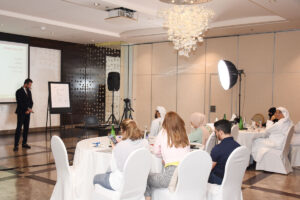 During the workshop, we will explore various topics that contribute to speech and language delays, helping you understand the underlying factors that may be influencing your little one’s communication skills. From discussing questions and answers related to speech delay concerns to creating awareness and an action plan for tackling linguistic development issues, we’ve got it all covered!
During the workshop, we will explore various topics that contribute to speech and language delays, helping you understand the underlying factors that may be influencing your little one’s communication skills. From discussing questions and answers related to speech delay concerns to creating awareness and an action plan for tackling linguistic development issues, we’ve got it all covered!
One important aspect we’ll address is the impact of screen time on children’s speech. In today’s digital age, it’s crucial to understand how excessive screen exposure can affect their language acquisition process. We’ll also shed light on other interesting areas such as jealousy among children under 11 years old and approaches for enhancing social skills in those with weaker personalities.
Don’t miss out on this incredible opportunity!
Registration Is Closed
Stay tuned as we uncover more exciting details about each topic in upcoming blog sections!
As parents, we are constantly observing and monitoring our children’s growth and development. It is important to be aware of any potential developmental delays that may occur in their speech and language skills. This workshop topic will provide valuable insights into identifying these delays early on.
During the workshop, Mr. Ahmed Sbeata will share key indicators to look out for when it comes to your child’s speech and language development. He will discuss milestones that children should typically reach by certain ages, helping you understand what is considered “normal” progress.
Additionally, the workshop will identify specific red flags that might suggest a delay in speech or language acquisition. These could include difficulties with pronunciation, limited vocabulary, or struggles with understanding instructions.
By learning how to spot these signs of delay, you can take proactive steps towards seeking appropriate intervention if necessary. Early identification and intervention are crucial for optimal outcomes in supporting your child’s communication abilities.
Remember, every child develops at their own pace, so it is essential not to compare them with others too much. However, being equipped with knowledge about spotting developmental delays empowers us as parents to address any concerns effectively.
When it comes to speech and language delays in children under the age of 11, there are various factors that can contribute to these challenges. It’s important for parents and caregivers to understand these factors so they can provide appropriate support and intervention.
One factor that can play a role is genetic predisposition. Some children may have a family history of speech or language delays, making them more susceptible to experiencing similar difficulties themselves. Additionally, certain medical conditions such as hearing loss or developmental disorders can also impact a child’s ability to communicate effectively.
Environmental factors can also contribute to speech and language delays. For example, if a child is not exposed to rich language experiences at home or lacks opportunities for social interaction, their communication skills may be affected. Additionally, exposure to excessive screen time or limited access to quality educational resources can hinder language development.
Another aspect worth considering is the importance of early intervention. Research has shown that children who receive early support for their speech and language delays have better long-term outcomes. Identifying delays early on allows professionals to develop targeted interventions tailored specifically for each child’s needs.
It’s essential for parents and caregivers alike to be aware of these contributing factors so they can take appropriate action if necessary. By creating an environment rich in verbal interactions, providing engaging activities that promote communication skills, seeking professional help when needed, we can support children with speech and language delays on their journey towards effective communication abilities.
During our training workshop on Understanding Children’s Speech and Language Delay, we make sure to set aside time for questions and answers. We understand that parents may have concerns or specific queries about their child’s speech development.
Mr. Ahmed Sbeata will be available to address any doubts you may have. Whether it’s regarding milestones, techniques for encouraging speech, or strategies to overcome language delays, we are here to help.
In this interactive session, you’ll have the opportunity to ask questions directly related to your child’s unique situation. Mr. Sbeata will provide personalized insights and guidance based on years of experience in the field.
This segment is designed not only as a platform for clarification but also as an opportunity for parents to learn from each other. By sharing experiences and exchanging ideas, participants can gain valuable perspectives that can positively impact their child’s progress.
Remember, no question is too big or too small when it comes to your child’s development. We encourage active participation so that every parent leaves with a sense of empowerment and understanding.
Join us in this engaging Q&A session where together we can unravel the mysteries surrounding children’s speech delays!
In this section of the workshop, we will delve into the importance of awareness when it comes to speech and linguistic development in young children. We’ll discuss how being aware of potential delays can help us take action early on, giving our little ones a better chance at overcoming any challenges they may face.
The first step is understanding that each child develops at their own pace. It’s crucial not to compare them with others or set unrealistic expectations. Instead, let’s focus on creating a supportive environment where they feel safe to explore and express themselves.
We’ll also explore various strategies for fostering language skills in everyday interactions. From reading books together to engaging in meaningful conversations, there are numerous ways we can encourage language development without putting pressure on our children.
Another important aspect is seeking professional guidance if needed. Speech-language pathologists play a vital role in identifying specific areas where children may need extra support. They can provide tailored intervention plans that address individual needs effectively.
Remember, communication is key! Openly communicating with your child’s caregivers, teachers, and therapists allows for consistent approaches across different settings, reinforcing progress made during therapy sessions.
By raising awareness about speech and linguistic development among parents and caregivers alike through workshops like these, we can equip ourselves with the knowledge needed to take proactive steps towards nurturing strong communication skills in our young ones!
So join us as we dive deep into this topic during our training workshop – Understanding Children’s’ Speech and Language Delay (below 11 years old). Together, let’s empower ourselves with valuable insights and action plans that pave the way for brighter futures for our little ones!
Mr. Ahmed Sbeata will be available to address any doubts you may have. Whether it’s regarding milestones, techniques for encouraging speech, or strategies to overcome language delays, we are here to help.
In this interactive session, you’ll have the opportunity to ask questions directly related to your child’s unique situation. Mr. Sbeata will provide personalized insights and guidance based on years of experience in the field.
This segment is designed not only as a platform for clarification but also as an opportunity for parents to learn from each other. By sharing experiences and exchanging ideas, participants can gain valuable perspectives that can positively impact their child’s progress.
Remember, no question is too big or too small when it comes to your child’s development. We encourage active participation so that every parent leaves with a sense of empowerment and understanding.
Join us in this engaging Q&A session where together we can unravel the mysteries surrounding children’s speech delays!
In today’s digital age, it is almost impossible to imagine our lives without screens. From smartphones to tablets, televisions to computers, screens have become an integral part of our daily routine. But have you ever stopped and wondered about the impact of excessive screen time on children’s speech development?
Research has shown that there is a link between increased screen time and delays in speech and language development in young children. The constant exposure to screens can hinder their ability to learn and communicate effectively.
When children spend too much time watching videos or playing games on screens, they miss out on important opportunities for interaction and communication with others. This lack of social engagement can negatively affect their language skills.
Moreover, the fast-paced nature of screen content often leads to shorter attention spans in children. They may struggle with focusing on conversations or following instructions because they are used to quick changes and instant gratification provided by technology.
As parents and caregivers, it is crucial for us to monitor and limit our child’s screen time. Encouraging activities that promote face-to-face interactions such as reading books together or engaging in imaginative play can help nurture their speech development.
Remember, moderation is key when it comes to screen time. Let’s strive towards creating a healthy balance between technology use and real-life experiences for our little ones!
Jealousy is a common emotion that can arise in children under the age of 11. It may stem from their need for attention and validation from their parents or caregivers. When a new sibling is introduced into the family, jealousy can become even more pronounced.
Children at this age are still developing their social skills and emotional regulation, so it’s important for parents to address feelings of jealousy with understanding and empathy. In our workshop, we will explore strategies to help children navigate these emotions in a healthy way.
One approach is to encourage open communication about feelings of jealousy. By creating a safe space where children feel comfortable expressing themselves, parents can help them process these emotions effectively.
Additionally, teaching children about empathy towards others can also be beneficial. Helping them understand that everyone has different needs and desires can foster compassion and reduce feelings of jealousy.
Providing individualized attention to each child is key. Making sure each child feels valued and loved can help alleviate any potential pangs of envy they may experience.
Join us in our training workshop on Understanding Children’s Speech and Language Delay (below 11 years old) to learn more about addressing jealousy in young children!
Through our workshop, Mr. Sbeata will discuss how to build an interactive, interesting personalities in young children and how to equip them with needed social skills that can promote their own self-esteem, confidence and help build friendships from an early age.
By participating in our training workshop on understanding children’s speech and language delay (below 11 years old), you will gain valuable knowledge that can positively impact your child’s development journey. Don’t miss out on this opportunity!
CONTACT US





